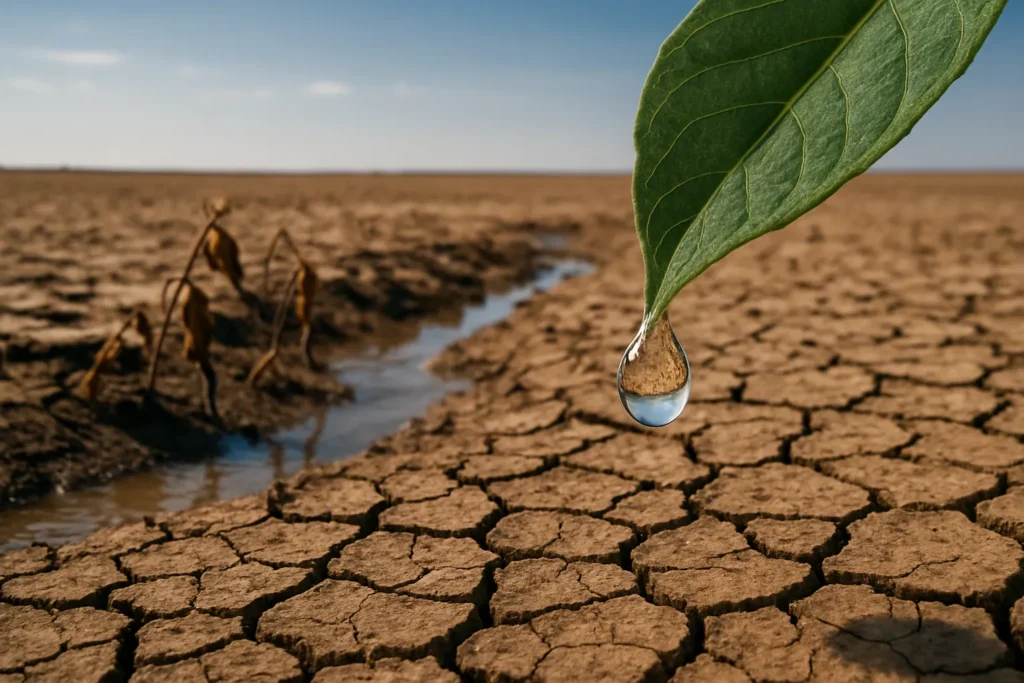The Human Cost of Half-Built Promises
Walk through Taveta, Kenya, and what greets you isn’t the joyous spectacle of freshwater bringing new life to parched farms. Instead: the rusted rebar and abandoned cement bags of a half-finished irrigation canal, a stark symbol of a broken promise. It’s no isolated incident. Under the Trump administration, sweeping cuts to U.S. foreign aid left dozens of water and sanitation projects dangerously incomplete across 16 countries—Nepal, Lebanon, Kenya among them—according to a damning Reuters investigation and firsthand reports from local leaders.
Behind every deserted building site are human stories: farmers George Mwangangi knows the canal not only remains useless but now threatens to collapse during seasonal rains. Local estimates put the cost to stabilize it at $2,000, twice the mean annual income in this part of Kenya. In Nepal, more than 100 community drinking water systems lie stalled—piles of plumbing supplies and 6,500 bags of cement gathering dust. The planned blessings of clean water instead morph into new hazards, leaving families fending for themselves.
This isn’t merely about the inconvenience of a missed deadline or a delayed ribbon-cutting ceremony. Public health experts warn that such interruptions expose millions to increased risk of disease. Dr. Shikha Adhikari, a Nepali water-safety advocate, emphasizes, “When projects halt, communities are forced back to drawing water from unsafe sources—rivers, shallow wells—making outbreaks of cholera or dysentery inevitable.” In Mali, unfinished water towers for schools and health centers stand as hollow shells, cruel monuments to promises broken.
What motivates policy choices that so profoundly alter life and death for communities far from Washington, D.C.? For many in these affected villages, the answer is less important than the reality: their fate was decided thousands of miles away, with the stroke of a pen.
The Politics of Aid: Short-Sightedness and Sidelining Expertise
Donald Trump’s foreign aid cuts were championed under the banner of “America First,” a slogan that implied dollars sent abroad were resources stolen from citizens at home. But what is lost in this calculus are the profound ripple effects that poorly planned aid withdrawals generate around the world—and ultimately, right here in the United States.
Historically, American foreign aid has been a force multiplier, advancing both humanitarian aims and U.S. interests. The U.S. Agency for International Development (USAID) was founded in 1961 and served as the expert engine behind decades of progress in global health, disaster relief, and infrastructure. Yet, during the Trump years, the State Department took direct control, sidelining the very expertise that once delivered results. As Harvard’s Dr. Samantha Powers—herself a former USAID administrator—notes, “Building trust takes years. Destroying it takes months. The price is paid by the world’s poorest.”
Policy decisions weren’t simply about numbers in a spreadsheet. Funding for critical projects, such as a $6 billion desalination plant in Jordan that was momentarily restored, was the exception. The majority, including 21 identified unfinished water or sanitation infrastructures, were abandoned midstream. Workers—some of them breadwinners for entire villages—simply left holes half dug, building supplies unsecured, and contracts torn up. In Lebanon, the cancellation of a solar initiative for water utilities did more than kill 70 jobs: it forced local water facilities to revert to burning expensive diesel, undermining green energy progress in a country already struggling with rolling blackouts.
“By leaving these projects unfinished, we jeopardize not just the health of vulnerable families abroad—we forfeit the goodwill and security that a smarter, more compassionate America can inspire.”
American dollars were transformed from engines of hope into reminders of abandonment. International goodwill, so painstaking to earn, was all too easily squandered.
Global Risks and the Moral Imperative Ahead
Beyond the immediate suffering, the world faces a cascading risk: the World Health Organization warns that every $1 invested in water and sanitation yields $4 in medical cost savings and labor productivity. Halting these investments doesn’t just mean more hospitalizations and deaths—it means less stability and greater waves of migration from regions disrupted by disease and ecological disasters. A 2023 Pew Research study highlights how the U.S. image abroad remains sharply wounded among residents of countries deemed expendable by the last administration’s policies.
Critically, the cuts could cost an additional 14 million lives by 2030, according to U.N. projections. How do we justify the abandonment of millions to preventable deaths from cholera, typhoid, or flood-related disasters, while claiming moral authority on the world stage? There’s no progressive case for erasing America’s role in fighting the world’s most basic injustices. The national security community, including figures like General James Mattis, has long emphasized that “if you don’t fund the State Department fully, then I need to buy more ammunition.” Peace and prosperity abroad keep American families safer at home.
Domestic investment and international aid need not be mutually exclusive. The vast majority of Americans support targeted, effective foreign aid when its impacts are plain—and when dollars spent are linked to measurable local outcomes. Rarely does aid fail because the concept is flawed; more often, failure stems from political posturing, mismanagement, and the short-termism that ignores our shared fate. History offers precedent: President Truman’s Marshall Plan, widely supported even in an era of U.S. economic anxiety, rebuilt the shattered economies of Western Europe, securing peace and prosperity for generations.
The unfinished projects in Kenya, Nepal, and beyond serve as a warning. Government should embody not just power, but compassion guided by the hard-earned lessons of the past. If America is to uphold its own ideals of equality, social justice, and a shared future, it must not shrink from its obligations—certainly not for the sake of a sound bite.

